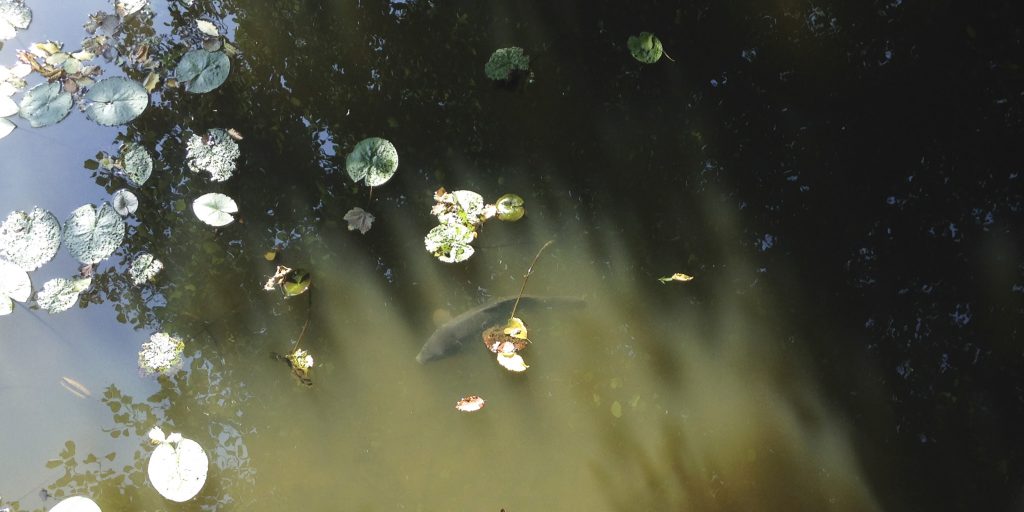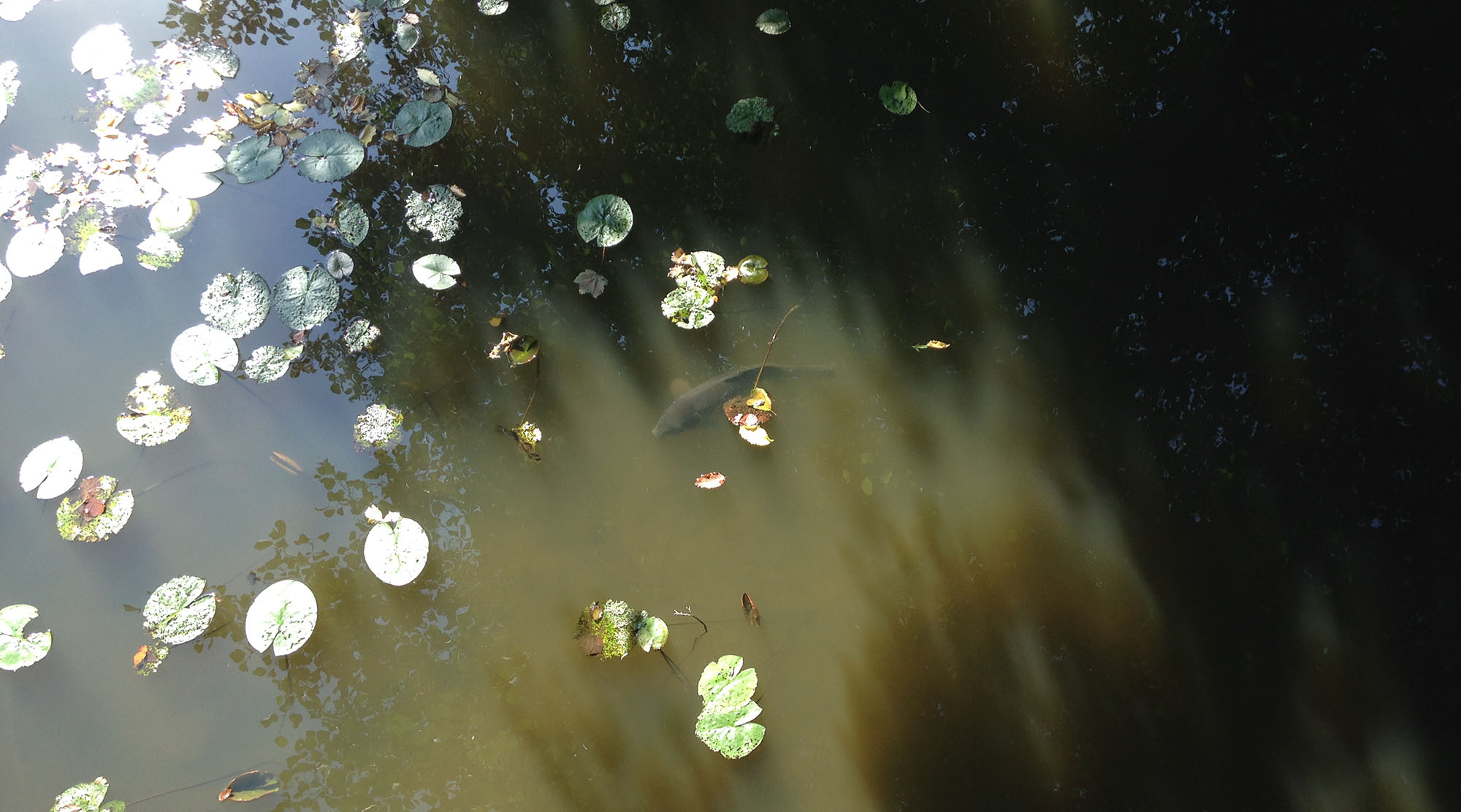 I’d like to say it was a typical Irish summer’s evening, but it was not. It was warm and nurturing, not too hot, with the rain being contrary and going somewhere else for a while. The cornfield opposite blushed with colour as it flirted with the last of the sun and rippled gently as it played with a shifting breeze, whispering a song that stole my thoughts from the canal in front of me.
I’d like to say it was a typical Irish summer’s evening, but it was not. It was warm and nurturing, not too hot, with the rain being contrary and going somewhere else for a while. The cornfield opposite blushed with colour as it flirted with the last of the sun and rippled gently as it played with a shifting breeze, whispering a song that stole my thoughts from the canal in front of me.
The float had been active, it had dipped and disappeared, been nudged and tickled gently as tench bubbles fizzed around it. But nothing had happened for a while, and my mind too easily left the rod behind and wandered off. Then something caught my eye in the clear water, jolting me back to reality: a shape, familiar, yet new. It glided purposefully under the reflection of the far bank, and I knew at once that it was a carp. “Did you see that?” I whispered across to Peter, not ten yards from me. He left his swim and snuck across the bank, landing beside me, and saw that my hands were shaking. “Christ,” he said, “that’s massive.”
I had read the books from my father’s library. Devoured Casting at the Sun. Brought Wood Pool to bed with me. BB, Richard Walker, Chris Yates, Rod Hutchinson and Tim Paisley all told stories that kept me awake at night. I knew for sure what a carp looked like, but I had never seen one.
I remembered the day, years before, when our family were driving home from a long walk through the hills of Westmeath, and we pulled over to the side of the road, by a set of gates that offered the road into woodland. “Through those gates sits Reynella Lake,” my father said, “and in it swim the biggest carp in Ireland.” I didn’t know what a carp was. Or should I say, I didn’t really know. But my father did, so much so that he tried—and failed—to buy the house that came with the lake. It wasn’t to be, and the mystery of the carp remained hidden for a few more years, fed by borrowed books that fuelled many dreams, until that summer’s evening, when the carp right in front of me turned its head, swam under my float, and started feeding.
The float did what I wanted it to do, and I struck. The fish snapped the line of course. Quickly too. But not so quick that I didn’t feel its power and know that it was bigger than anything I had caught before. But my eyes had told me enough of the story already; a single pair of fish—if there can be such a thing—the only two carp we had seen in the whole canal. They needed catching, as if only then to become real. We searched but they were elusive, and when we encountered them again, it was always by accident, when they were pretending to be tench. Always the line snapped. Or the hook gave way. I daren’t use heavier line or the tench wouldn’t bite. I knew from the books that I needed time to study them. We simply needed to find more of them, and so my friend Peter and I started a quest that would consume our fishing for years to come.
In the days before smartphones and the internet, we did our research in tackle shops and by reading books. We bought maps and pieced clues together, drove around the boreens and back roads of the Irish midlands, and tracked down a lake not far from the canal, called Gaulmoylestown. It was small and shallow, not much to look at, the colour of Earl grey tea, but it had an island towards one end, and a bed of reeds at the other that made part of it inaccessible to our standard tactics, and added a layer of mystery. But more importantly, it was full of carp. We fished the only way we knew how, with maggot and sweetcorn under wagglers, and we caught, eventually. But not after nearly soiling ourselves in excitement as fish larger than any we had caught before showed themselves by breaching and splashing and expressing the kind of tomfoolery I now know as typical of the species.
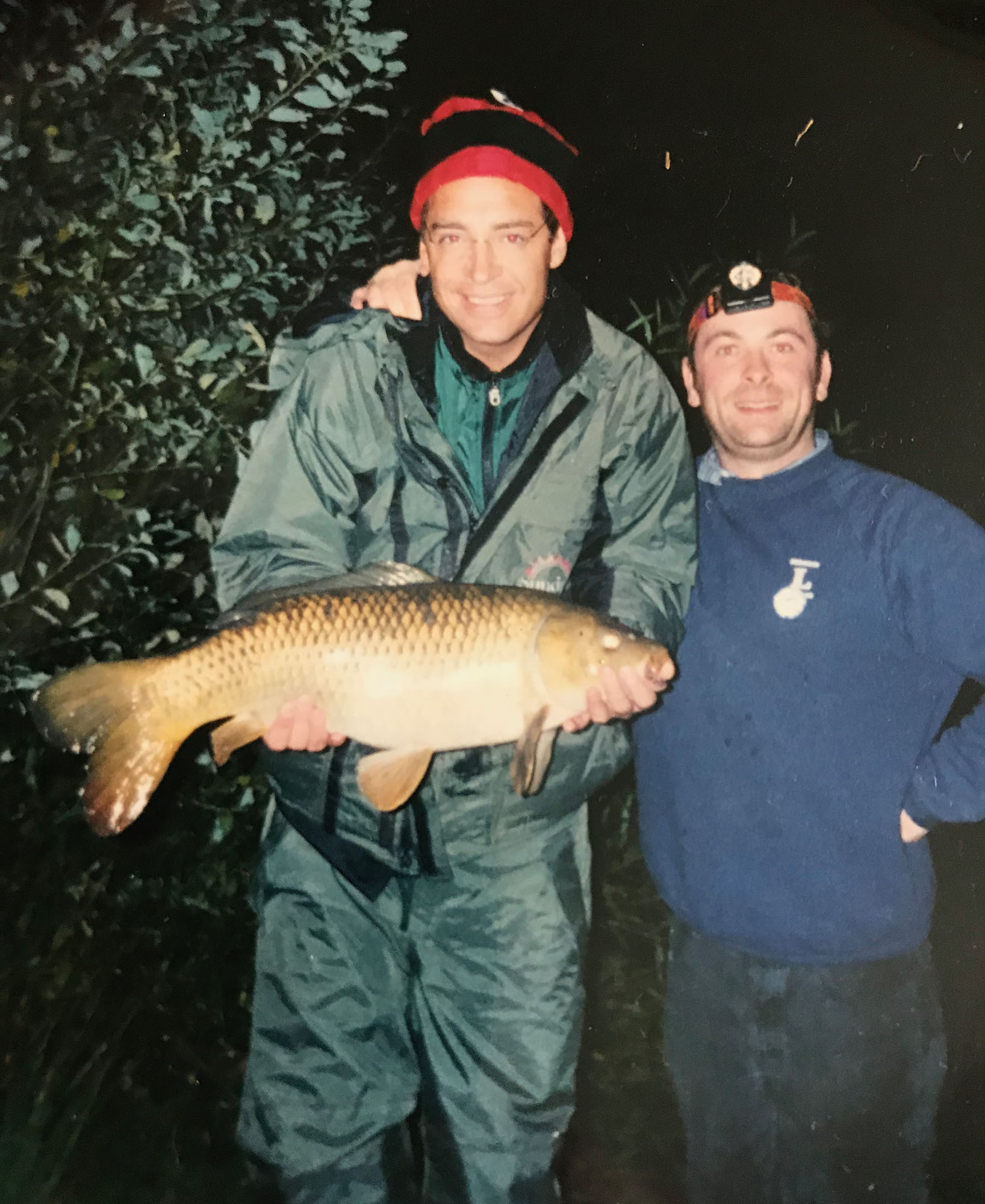
I remember my first, sort of. It was about 4lbs, a common carp, then another, bigger than my biggest tench. I thought for sure the rod would break, or my elbow. But everything held, and personal bests were regularly blown away with the dust. The carp there were obliging, did not grow big by universal standards, but were enormous by ours. Rumours of fish into double figures kept us awake at night, but we never saw them. Catching fish of five, six and seven pounds was more than enough. Then Peter had one that nudged the scales past nine. Suddenly the ten-pound barrier was within grasp, and it was all that mattered.
Gaulmoylestown was our playground for a number of years, until the venue became so popular that it was difficult to find the space to fish. Then one day we met an Englishman called Gerry Heapes, who knew more about carp than anybody we had met, and who was testing a remote-controlled boat to deliver bait accurately over distance. In that moment everything changed. I did not notice the sudden loss of my childhood, did not hear if it made a noise as it was expunged from my body by the whirring hypnotics of a plastic, electric glorified bait dropper.
Gerry was a kind and generous man, was passionate about and fascinated by carp, and fielded our phone calls no matter what time of day we rang him, as we searched for answers to some carp-themed riddle. We soon discovered that fisherman had spread the Gaulmoylestown carp far and wide, and in a land of lakes, it was just as easy to get lost in legend as it was to get lost in the twisting narrow, hedge-lined lanes of the midlands. There were carp everywhere, but nowhere all the same, if you couldn’t find them.
If we couldn’t get away to fish, living in Dublin saw regular walks to its parks, where I could watch carp go about their business while people went about theirs, seemingly oblivious to the monsters swimming under the ducks. Herbert Park, near to where my sister lived, had bigger fish but they were difficult to locate and to see clearly, but Ranelagh Park Gardens, near where I lived, had a much smaller, shallower lake, and the fish seemingly taunted us by hiding in clear sight behind a “No Fishing” sign. Then Peter and I climbed over its gates late into the night, and caught one. There were none in the double figure bracket, but you could watch them for hours and learn how they moved and fed. I took my father there one day, and we saw the small lake thronged with tiny carp, and watched excited children come with buckets and jars and catch what they could in colanders and sieves, and escaped carp fingerlings lined the paths to the streets behind the park, where crows battled with feral cats to scavenge them. It seemed that no matter where I turned, I found carp. No matter where we fished, carp were at the forefront of my mind. All roads, no matter how remote or twisted, led to carp.
I moved to London, and soon after that my new collection of carp fishing paraphernalia outweighed all my other belongings—matching rods, bite alarms, bedchairs and bivvy—yet I would carry it all back to Ireland to fish with my friends. Trips by the water lasted several days and were focussed, targeted events. We never ventured into local towns at night for beers, never used the opportunity as an excuse to do anything else except try to catch a personal best. Somewhere in the middle my coarse fishing tackle got stowed away, hung up to dry, left to the dust and cobwebs. It hadn’t made the journey to England with me. I had moved on. I simply didn’t notice the moment I discarded so much of my youth, so much of the history wrapped up in those objects I had cared for, and that had nourished me since I was a boy.
Targets quickly gave way to new targets, and eventually the search for a twenty pounder coerced holidays in Ireland to turn into holidays in England. Essex first, then Kent and Surrey. Peter broke the 20lb barrier before me. He generally did everything first when it came to carp fishing. When I was busy sleeping in my bivvy, he was focussing on catching fish. I was working hard and playing harder, and at some point had lost my spark. I had started to turn up, bait up, cast out my lines and go to sleep for four days. The lakes were small, the fish increasingly disfigured. The beautiful common carp we used to catch were swapped for bulkier mirror carp. And there were so, so many. The swims were manicured but full of rubbish, wildness was difficult to find, and somewhere in the middle the fun had disappeared.
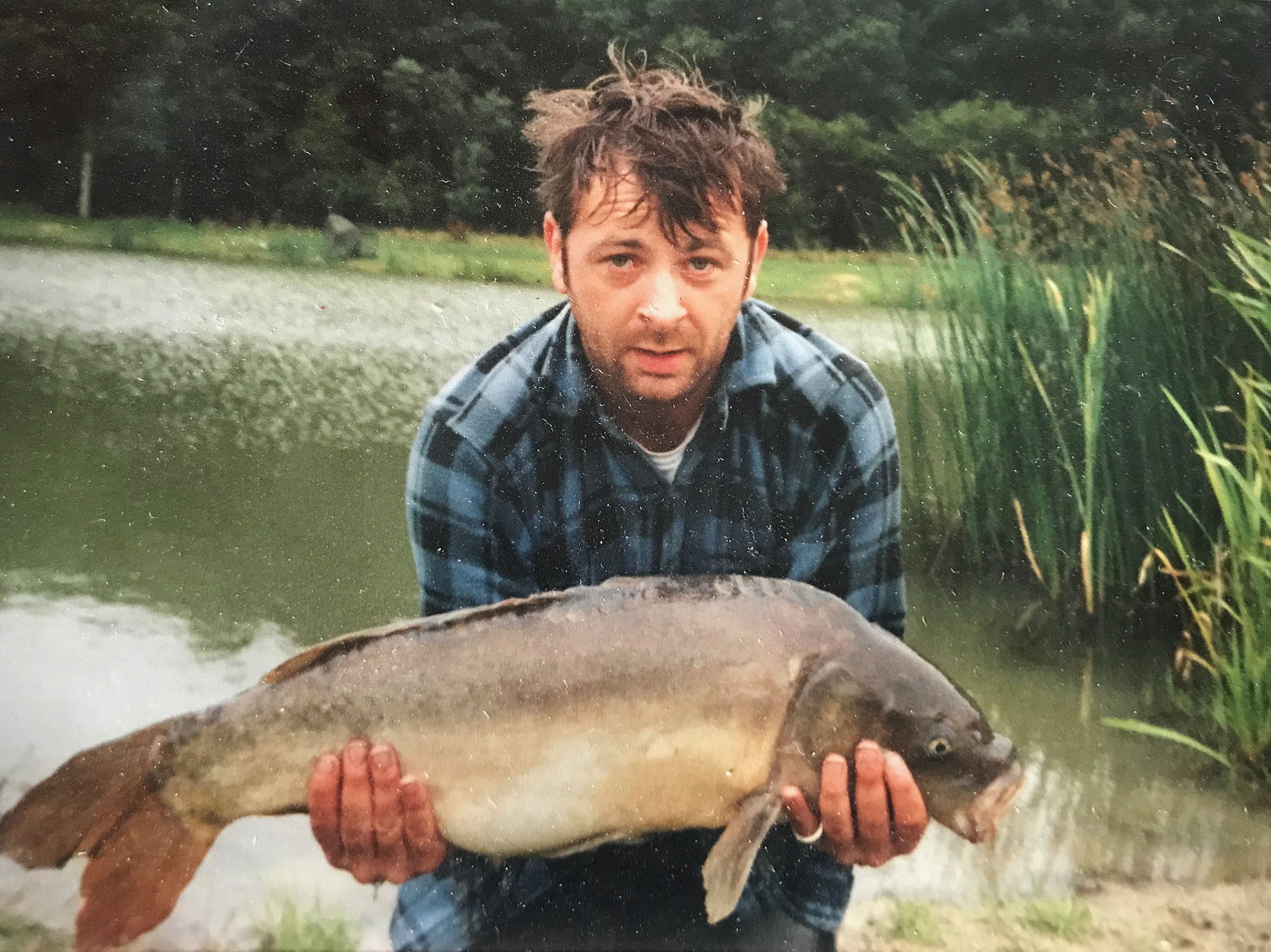
And it was while fishing in Surrey with Peter that I caught my biggest. While I slept, he fished hard and had been rewarded at dawn by a fish of 26lbs. The biggest he had ever caught, and by miles. We celebrated as if we’d both caught it, but I knew it owed nothing to me. Nevertheless, it was a journey we had taken together, step by step, yet we didn’t notice the banging of a gong to call an end to our quest, but it had sounded nonetheless. I resolved to move swims to a smaller lake, really only a pond, and cast out to the margins of a tiny island. The optonics told me first, as they always did, and half asleep I fought and conquered a scrawny fish that looked as if it hadn’t had a proper meal in a lifetime. It weighed 19lbs 15oz. My best by some distance, and the last carp I caught for over twelve years. On returning to London, my carp gear was carefully stowed away in my garage, and fishing left me quietly and without remorse, save for an occasional trip to Canada, up near the Arctic Circle, almost to the ends of the earth, with Peter and some other friends. Looking back, they appear like over-zealous tributes to fishing as a lost lover, but they were invaluable because they kept the flames of passion, that inexplicable yearning, from extinguishing entirely.
Then about seven years ago, an itch took hold, all because of a small pond in a field in Kent. My father-in-law told me about it over a pint in his village pub, and his tales were embellished by a farm worker who sat at the end of the bar drinking cider as quickly as if it was water. His cousin owned it. Of course I could fish it. Carp again were the targets, but rudd more often the catch.
But something was different. I didn’t want to sit and wait, to overburden myself with gear. It was as if by travelling light, by keeping it simple, that I was preventing my life from being further complicated. I didn’t want to fish into ponds the colour of tea. Or for fish that didn’t seem to have a choice over taking my bait. It was to wilder places I was drawn, where mystery still held sway, and where the odds seemed more balanced in the fishes’ favour. I had mourned the loss of soul and patience in my angling, and resolved to take my time more, to absorb the surroundings and the moment. I left my old carp gear in the garage, and bought my first cane rod, a Mark IV, matched it to a Mitchell 300, and with patience and observation, teased a small old carp from the margins, with nothing more complicated than the line running through my fingers.
Since then I have fished for carp plenty of times, but mostly while I am fishing for something else. I go to carp waters to fish for perch. I catch carp when fishing for tench. I visit the glorious Ashmead every year and watch leviathans swim while I desperately seek out the elusive but bigger rudd. I fish often with cane, but sometimes with glass or carbon, but I always travel light. My biggest fish last year was a carp in the early double figures, tricked from the surface by a floating dog biscuit, using a twig as a controller. It was matched by another, from a different venue, that snaffled a prawn meant for a perch. The year before, other than a 260lb sturgeon, my best was a beautiful wild carp, fit and lean, the colour of chestnut, that I tricked on floating bread dropped under the rod tip into a gap between Lily pads, in the gardens of a castle.
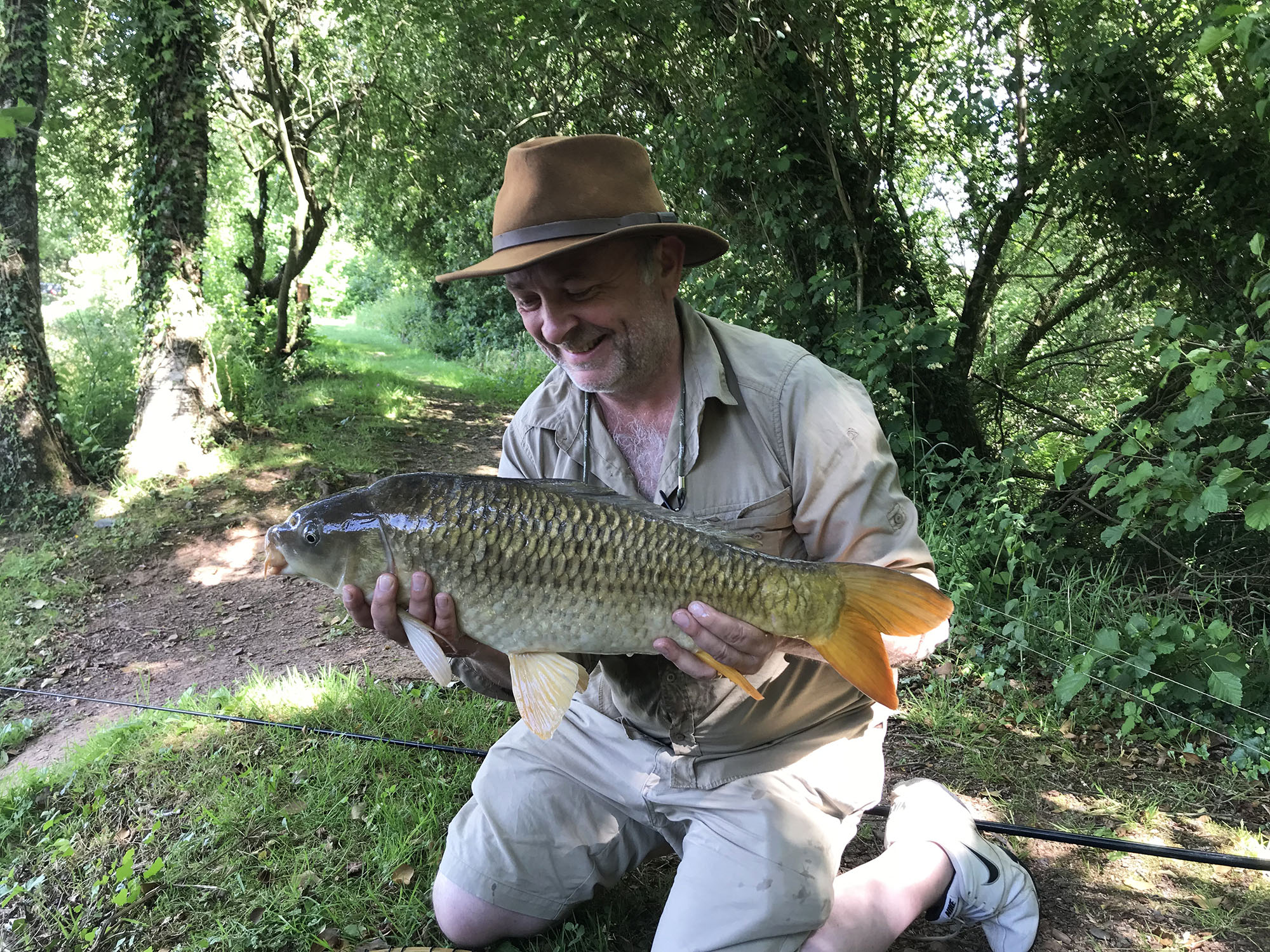
I know that one day I’ll beat the 20lb barrier by chance, while I’m probably fishing for something else. To abandon my quest, so close to the target, did not fully make sense to me until much later. Yet I owe carp fishing a note of thanks, because it took me to the point where I knew it was possible to lose my love of fishing, and that was something I didn’t want to happen. When this period of isolation is over, I will return to my fishing and fish how I want to, and if I fall asleep, it’s on the bank under the sun, with my cap pulled over my eyes, lulled there by the gentle breeze playing with the leaves of the trees, and the reeds that line these wilder waters.

